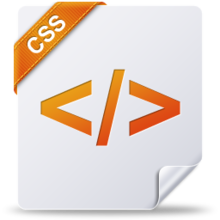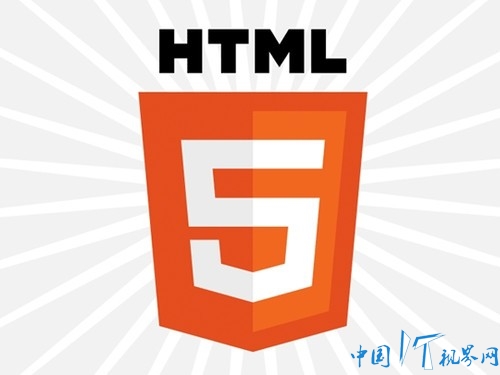 Web Front-end
Web Front-end
 CSS Tutorial
CSS Tutorial
 How to use index attribute? Summarize the usage of index attribute examples
How to use index attribute? Summarize the usage of index attribute examples
How to use index attribute? Summarize the usage of index attribute examples
When the z-index attribute and position attribute are not included, the stacking order of all elements is consistent with the order in which they appear in the HTML document. (Except for the special case of using negative margin to overlap inline elements.) When an element is floated, the floating block element is placed between the non-positioned block element and the positioned block element. In other words, the floating element is displayed in the normal flow. Above descendant block elements, and below descendant inline elements in regular flow. When the position attribute is added to an element, all elements with the position attribute and their sub-elements will be displayed on top of other elements without the position attribute. Z-index is only effective on elements with the position attribute set. The z-index attribute on elements without the position attribute does not take effect. The z-index attribute generates a stacking context. A group of elements with a common parent element that are moved forward or backward together form a stacking context. Each stacking context has a single root element. When a new stacking context is formed on the element, all child elements in the stacking context are limited to a fixed area in the stacking order. A stacking context construct
1. 10 recommended articles about block elements

##Introduction: When the z-index attribute and position attribute are not included, the stacking order of all elements is consistent with the order in which they appear in the HTML document. (Except for the special case of using negative margin to overlap inline elements.) When an element is floated, the floating block element is placed between the non-positioned block element and the positioned block element. In other words, the floating element is displayed in the normal flow. Above descendant block elements, and below descendant inline elements in regular flow. When an element is added to the position attribute, all elements with the position attribute and its sub-elements will be displayed in its...
2. Resolve the stacking order of elements in CSS

Introduction: When the zindex attribute and position attribute are not included, the stacking order of all elements is consistent with the HTML in which it is located. The order of appearance in the document is consistent. (Except for the special case of using negative margin to overlap inline elements.) When an element is floated, the floating block element is placed between the non-positioned block element and the positioned block element. In other words, the floating element is displayed in the normal flow. Above descendant block elements, and below descendant inline elements in regular flow. When an element is added with the position attribute, all elements with the position attribute and its sub-elements...
3. Comprehensive analysis of the tabindex attribute in HTML5

Introduction: The following editor will bring you a comprehensive analysis of the tabindex attribute of HTML5. The editor thinks it’s pretty good, so I’ll share it with you now and give it as a reference. Let’s follow the editor to take a look
4. In-depth analysis of the position attribute and z-index attribute in css

Introduction: In web design, the use of the position attribute is very important. Sometimes if we cannot understand this attribute clearly, it will bring us many unexpected difficulties. There are four different positioning methods for the position attribute, namely static, fixed, relative, and absolute. Finally, we will introduce the z-index attribute, which is closely related to the position attribute. Part One: position: staticstatic
5. position attribute and z-index attribute in css

Introduction: This article mainly introduces an in-depth understanding of the position attribute and z-index attribute in CSS (recommended). Students who want to learn about CSS styles can learn about it. I hope it will be helpful to everyone's study.
6. HTML Tutorial: Establishing a Super Connection

Introduction: [Introduction] Users who cannot tabbing or cannot use pointing devices can use the shortcut tab key to open the connection, and they must also have a logical tab sequence. Although HTML is linear, the tabindex attribute allows you to define the order of its shortcut keys, and these logical tabs should automatically fall into their positions. Shortcut keys Shortcut keys can be changed more conveniently by pressing specific keys on the keyboard...
7. htmlTutorial: Use tabIndex to easily implement web navigation

Introduction: Recently, when I entered form data on a website, I filled in a column and clicked the [Tab] key to move Go to the next column; when I looked up, I was surprised to see the cursor jump to another column further down the page. I used my mouse to move the cursor into the correct text field, but soon the [Tab] key problem started again. This situation made me want to take a look at page design and how the tabIndex property aids navigation via the keyboard. ...
8. Detailed explanation of CSS z-index attribute (with image analysis)_html/css_WEB-ITnose
Introduction: Detailed explanation of the z-index attribute of CSS (with image analysis)
9. The role of a negative z-index attribute value_html/css_WEB-ITnose
Introduction: The role of negative z-index attribute value
10. What does the z-index attribute of CSS do? Used_html/css_WEB-ITnose
Introduction: What is the z-index attribute of CSS used for
[Related Recommended Q&A]:
javascript - How to use js to modify the z-index attribute
javascript - Image loading execution sequence and control method
javascript - BootStrap tabindex attribute???
javascript - Why cannot the selected item be saved when cloning the selecet element?
javascript - JS question: Please tell me about gettingAttribute() to obtain attributes.
The above is the detailed content of How to use index attribute? Summarize the usage of index attribute examples. For more information, please follow other related articles on the PHP Chinese website!

Hot AI Tools

Undresser.AI Undress
AI-powered app for creating realistic nude photos

AI Clothes Remover
Online AI tool for removing clothes from photos.

Undress AI Tool
Undress images for free

Clothoff.io
AI clothes remover

AI Hentai Generator
Generate AI Hentai for free.

Hot Article

Hot Tools

Notepad++7.3.1
Easy-to-use and free code editor

SublimeText3 Chinese version
Chinese version, very easy to use

Zend Studio 13.0.1
Powerful PHP integrated development environment

Dreamweaver CS6
Visual web development tools

SublimeText3 Mac version
God-level code editing software (SublimeText3)

Hot Topics
 1386
1386
 52
52
 Working With GraphQL Caching
Mar 19, 2025 am 09:36 AM
Working With GraphQL Caching
Mar 19, 2025 am 09:36 AM
If you’ve recently started working with GraphQL, or reviewed its pros and cons, you’ve no doubt heard things like “GraphQL doesn’t support caching” or
 Building an Ethereum app using Redwood.js and Fauna
Mar 28, 2025 am 09:18 AM
Building an Ethereum app using Redwood.js and Fauna
Mar 28, 2025 am 09:18 AM
With the recent climb of Bitcoin’s price over 20k $USD, and to it recently breaking 30k, I thought it’s worth taking a deep dive back into creating Ethereum
 Vue 3
Apr 02, 2025 pm 06:32 PM
Vue 3
Apr 02, 2025 pm 06:32 PM
It's out! Congrats to the Vue team for getting it done, I know it was a massive effort and a long time coming. All new docs, as well.
 Can you get valid CSS property values from the browser?
Apr 02, 2025 pm 06:17 PM
Can you get valid CSS property values from the browser?
Apr 02, 2025 pm 06:17 PM
I had someone write in with this very legit question. Lea just blogged about how you can get valid CSS properties themselves from the browser. That's like this.
 A bit on ci/cd
Apr 02, 2025 pm 06:21 PM
A bit on ci/cd
Apr 02, 2025 pm 06:21 PM
I'd say "website" fits better than "mobile app" but I like this framing from Max Lynch:
 Comparing Browsers for Responsive Design
Apr 02, 2025 pm 06:25 PM
Comparing Browsers for Responsive Design
Apr 02, 2025 pm 06:25 PM
There are a number of these desktop apps where the goal is showing your site at different dimensions all at the same time. So you can, for example, be writing
 Using Markdown and Localization in the WordPress Block Editor
Apr 02, 2025 am 04:27 AM
Using Markdown and Localization in the WordPress Block Editor
Apr 02, 2025 am 04:27 AM
If we need to show documentation to the user directly in the WordPress editor, what is the best way to do it?
 Stacked Cards with Sticky Positioning and a Dash of Sass
Apr 03, 2025 am 10:30 AM
Stacked Cards with Sticky Positioning and a Dash of Sass
Apr 03, 2025 am 10:30 AM
The other day, I spotted this particularly lovely bit from Corey Ginnivan’s website where a collection of cards stack on top of one another as you scroll.



